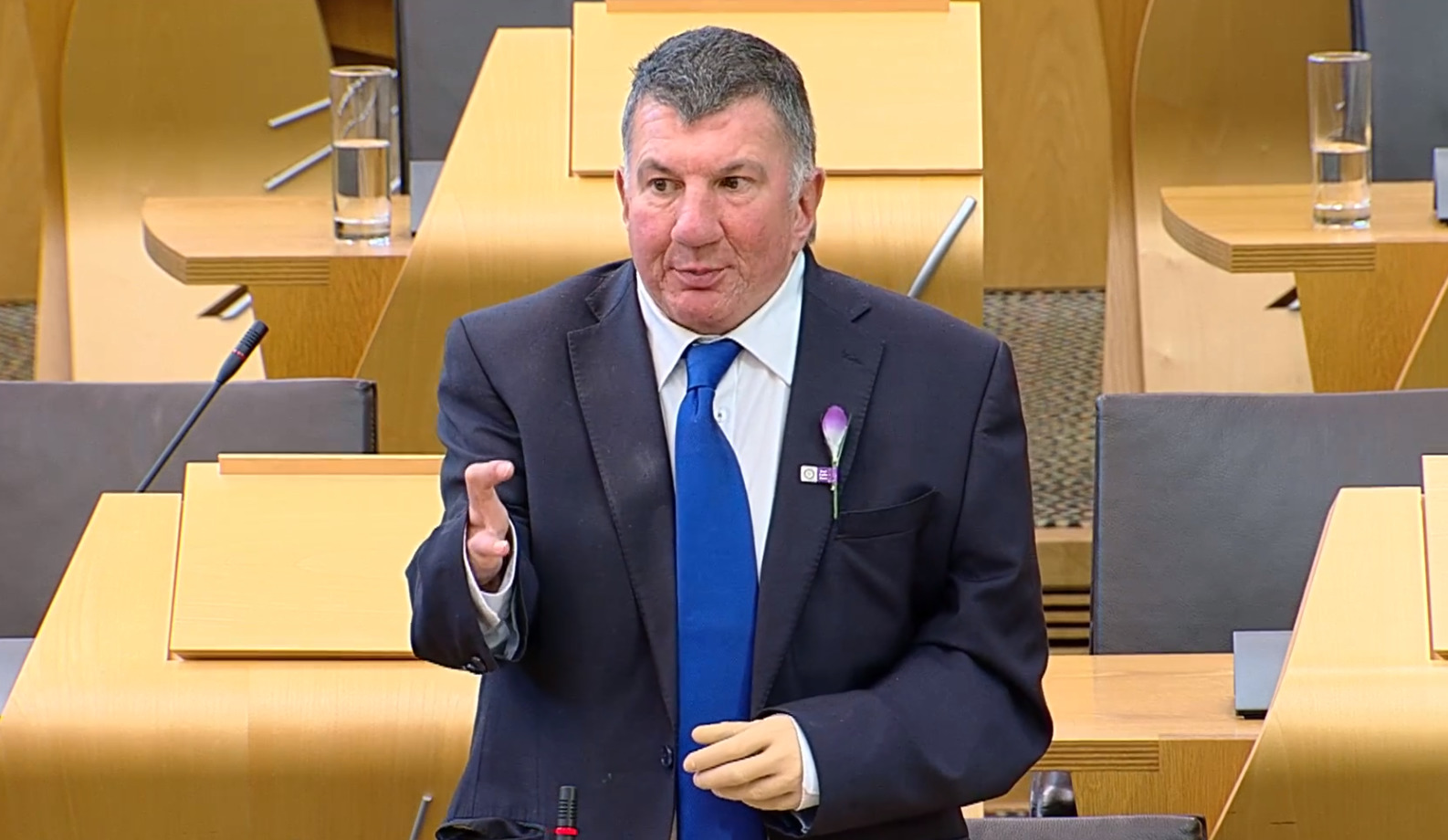The Tories’ shadow equalities minister has asked 11 questions this month of the Scottish Government about abortion, prompting concerns his stance on reproductive rights is at odds with his role.
Jeremy Balfour MSP, who backed a motion put forward by SNP MSP John Mason last year calling on the Scottish Parliament to “consider taking steps to restrict abortion now that babies are surviving at a younger age”, has put a series of questions to the government on the impact of remote abortions.
But women’s rights campaigners claim Balfour’s approach appears to challenge an extension of reproductive healthcare which, they say, has been beneficial to many during the pandemic.
During the Covid-19 crisis women in Scotland, England and Wales have been able to take medical abortion pills at home during the first 12 weeks of pregnancy following a telephone or video call.
The Scottish Government is now consulting on whether to make these changes permanent.
Balfour’s questions included asking how the prevalence of coercion to continue or terminate a pregnancy is monitored. He also asked for the number of reported complications or mental health concerns from taking one or both pills at home, the impact on costs, and the number of emergency admissions since changes to procedures.
Abortion is a keystone issue for women’s equality, and we would expect anyone who champions equality to advocate for women’s access to reproductive health services.
Emma Ritch, ENGENDER
Feminist organisation Engender suggested Balfour’s stance on reproductive rights was at odds with his position as shadow equalities minister.
Speaking to The Ferret, director of Engender Emma Ritch said: “Abortion is a keystone issue for women’s equality, and we would expect anyone who champions equality to advocate for women’s access to reproductive health services.
“Early medical abortion at home simply removes the barriers facing some women who need to access reproductive healthcare. Continuing to allow early medical abortion at home does not remove the option for face-to-face appointments, rather it enables women and their doctors and nurses to make the right decision for them.”
Ritch said current arrangements make access to abortion care easier for women in rural areas, women with additional caring responsibilities, and women in coercive relationships.
She added: “Unfortunately, in Scotland as in all countries, there are those who seek to restrict women’s access to abortion. The Covid-19 pandemic has seen very few signs for optimism, but the move to telemedical abortion healthcare was one of them – we must resist those who seek to undo this good work.”
‘Misinformation’ on abortions
Anti-abortion organisation Society for the Protection of Unborn Children (SPUC), has mounted a campaign against the extension of remote abortions. SPUC previously sought to legally challenge the Scottish Government’s decision to allow the second pill to be taken at home in 2017. But it was thrown out by the court and an appeal was rejected last year.
SPUC said that home abortions mean “there is no way of ensuring the woman is alone during the telephone consultation, and is not being forced to order the pills”.
The SPUC spokesperson raised concerns that women need to “self-assess” gestation and “self-manage” the administration and outcomes, and cited an example from England where a woman took the pills at 28 weeks, beyond the legal limit.
Engender has produced a template response to the Scottish Government consultation with abortion care provider British Pregnancy Advisory Service (BPAS), Amnesty International and Abortion Rights Scotland. These groups argue that “the need to attend appointments in person may have complications for women with coercive and controlling partners – particularly where they have to account for their time or travel”.
Balfour also asked about the number of meetings or communications the government held with BPAS in the last five years, and about the number of women to receive a “pills by post” abortion kit from BPAS since 31 March.
BPAS is a charity which operates specialist clinics, the vast majority of which are in England and Wales.
The government confirmed it met with BPAS once in 2016 and once in 2019, and that a “small number” of abortions in Scotland had been carried out using “pills by post” from BPAS but that “the great majority of abortions in Scotland are provided by NHS Boards”.
BPAS told The Ferret its services had been the subject of “a concerted campaign of misinformation” on social media, with “anti-choice users suggesting we are responsible for the deaths of women (as well as babies)”.
Following Balfour’s questions, BPAS suggested the MSP consider its research, published this month, which found that the UK Government’s two-child cap on benefits was a “significant factor in women’s decision making around whether or not to continue a pregnancy”.
A BPAS spokesperson said: “If Mr Balfour is concerned about women feeling under pressure to end a pregnancy, we suggest he looks at his own party’s policies.
They added: “The two-child limit removes the ability of some women to continue an otherwise wanted pregnancy, forcing them to choose between plunging their families in to further poverty or having an abortion,”
Anti-choice MSPs like Jeremy Balfour and John Mason are undermining women’s access to healthcare and safe abortion. They are contributing to a culture of fear and intimidation.
Monica Lennon, Scottish Labour
Scottish Labour MSP Monica Lennon commented: “Abortion is healthcare, and all women should have the right to choose it.
“Anti-choice MSPs like Jeremy Balfour and John Mason are undermining women’s access to healthcare and safe abortion. They are contributing to a culture of fear and intimidation.”
Lennon added that “allowing early medical abortion at home has protected the safety of service users and healthcare workers during the pandemic”.
Glasgow Shettleston MSP John Mason made clear his opposition to remote abortions in a recent column in The Times, which argued the move is “weakening safeguards and waiving safety concerns for some of the most vulnerable”.
Responding to criticisms of his position, Mason told The Ferret: “I think even those who support abortions in principle can have reservations about these abortions. There is less medical support involved and so they are clearly less safe than the previous system before Covid-19.
“No one wants ‘a culture of fear and intimidation’. I certainly do not. However, we do know that some women are subjected to fear and intimidation by their partner (or other family members) who do not want the baby even if she does.”
Mason added that he feared more generally that “the potential physical, mental, and emotional risks of having an abortion” are too often “not spelled out” to “expectant mothers”.
Balfour was contacted by The Ferret but declined to comment.
Photo thanks to Scottish Parliament TV.













